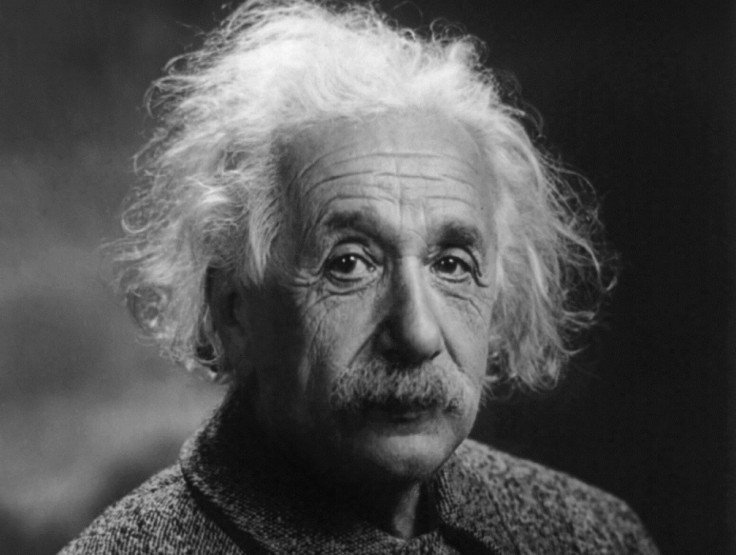Einstein's Letter of Sympathy Towards Jews Fetches 8000 Pounds At Auction

A letter revealing Albert Einstein's deep feelings of sympathy for the sufferings of the Jewish people under Nazi rule was auctioned recently and sold for 8000 pounds ($12,500).
Written in 1939 to a hat merchant Isidore Zelnikerof Bronx in New York, who was involved in efforts to help European Jews escape the Nazi regime, it lauds the Jewish community for its power of resistance and terms their suffering as a sacred cause.
The letter is one among many such communications Einstein had with American and European Jews helping holocaust refugees, says LiveScience.
When the letter was written, Einstein who had fled Germany had been living in Princeton for six years, and was serving as a professor of theoretical physics at the Institute for Advanced Study. Hitler was just months away from invading Poland.
In an earlier letter auctioned in 2012, the physicist had spoken of his deep connection to Jewish heritage and affinity for the Jewish mentality. But the letter, which dwelt more on his thoughts on God, fetched a whopping 2 million pounds ($3 million).
In that letter he had dubbed belief in God and religion as borne of childish superstitions and human weakness, without singling out any religion. He had also dismissed the notion of Jews as the chosen lot.
God and dice
In an previous letter, he had strongly voiced his views on God seeking to dismiss 'systematic lies being told' on his beliefs. "I do not believe in a personal God and I have never denied this but have expressed it clearly. If something is in me which can be called religious then it is the unbounded admiration for the structure of the world so far as our science can reveal it."
Coming from the man famous for his 'God never plays dice' statement, this may be surprising until examined in detail.
It was the indeterminate nature of the quantum world that led the world's top scientists to say that statement.
His belief in precise mathematical laws that govern the world saw God as someone who formulated the laws and then left the universe alone to evolve according to these laws, suggests V Natarajan, a theoretical physicist who considers Einstein his guru.
Letters and manuscripts penned by the genius continue to offer new insights with a neglected manuscript describing Einstein proposing a change to the Big Bang theory of universe formation.
The man known popularly for his E=MC2 equation of energy mass equivalence is more widely honoured in the scientific world for his general theory of relativity.
Explaining gravity as arising out of geometry of spacetime, he deduced that the gravitational field acted upon itself. Space and time became active players in the universal performance of events.
More interestingly, it allows spacetime to bend back upon itself under the influence of very strong gravitational field to make time travel possible.
Black holes and the various dimensions in the universe (as mind-bogglingly glimpsed in Hollywood's Interstellar) are off-shoots of this intuitive finding, verified by many experiments. Reconciling relativity to quantum mechanics is the near-impossible task left for physicists today.
Unless a letter or manuscript, from the past, unlocks the code.
© Copyright IBTimes 2025. All rights reserved.





















